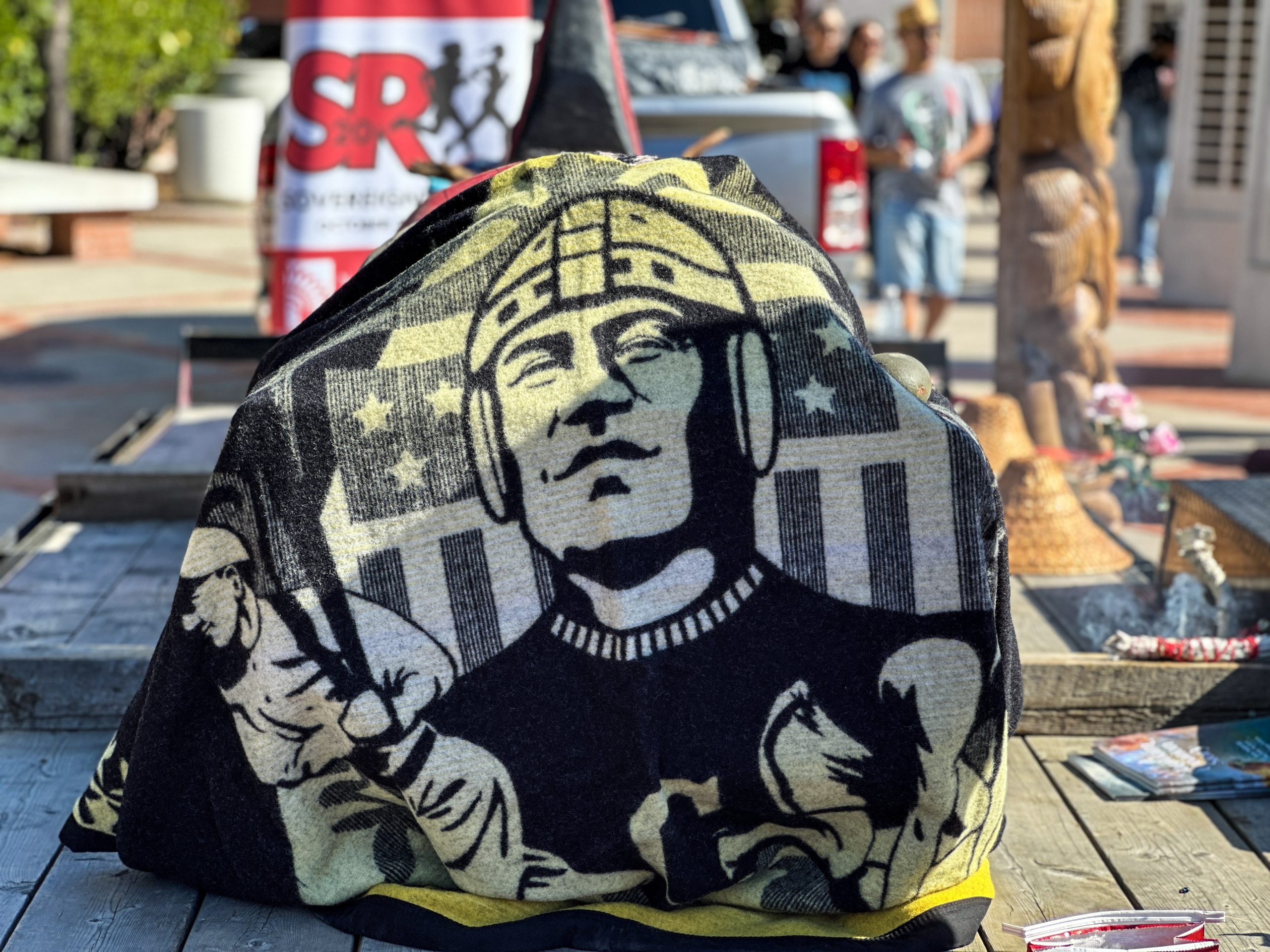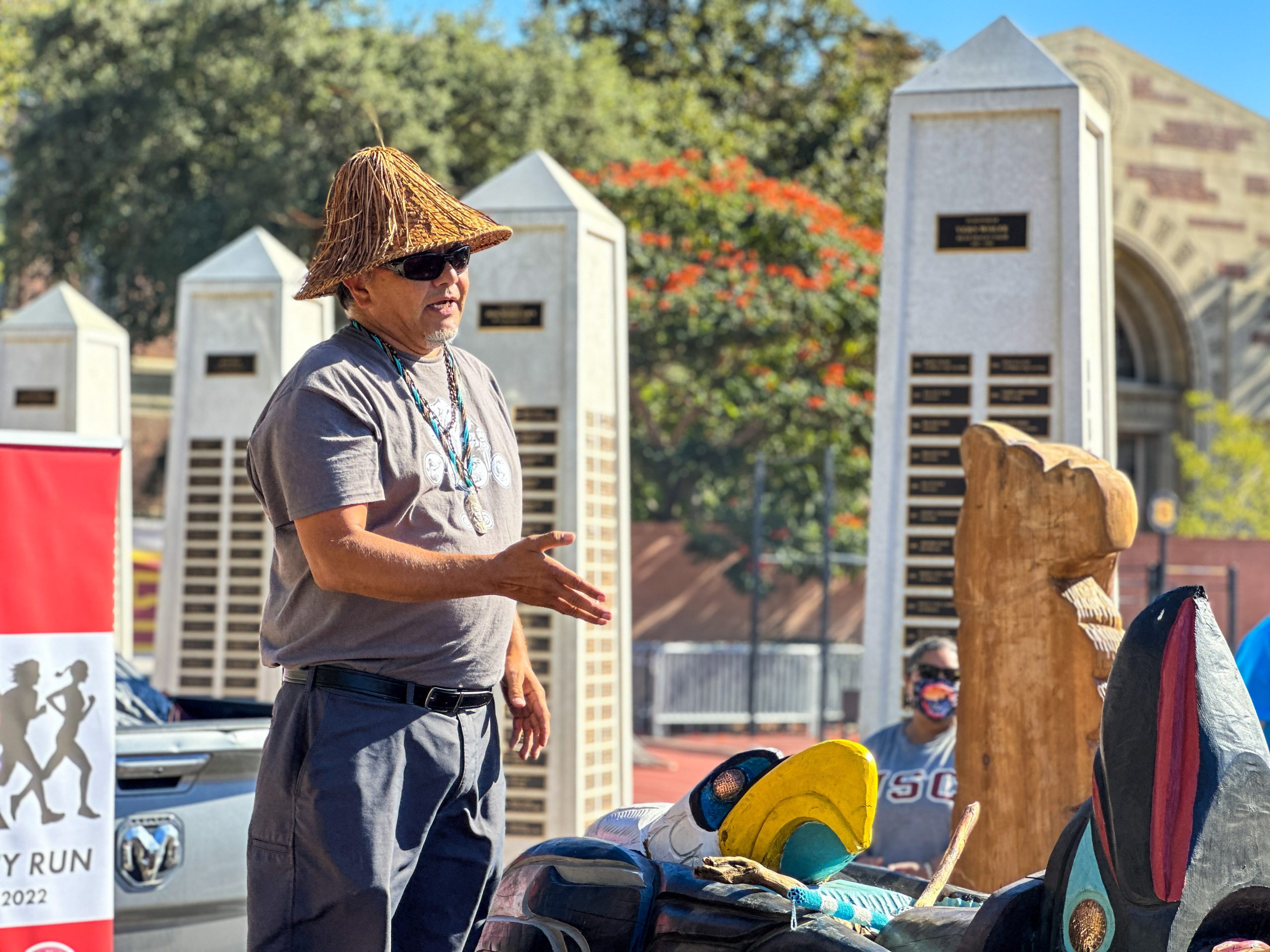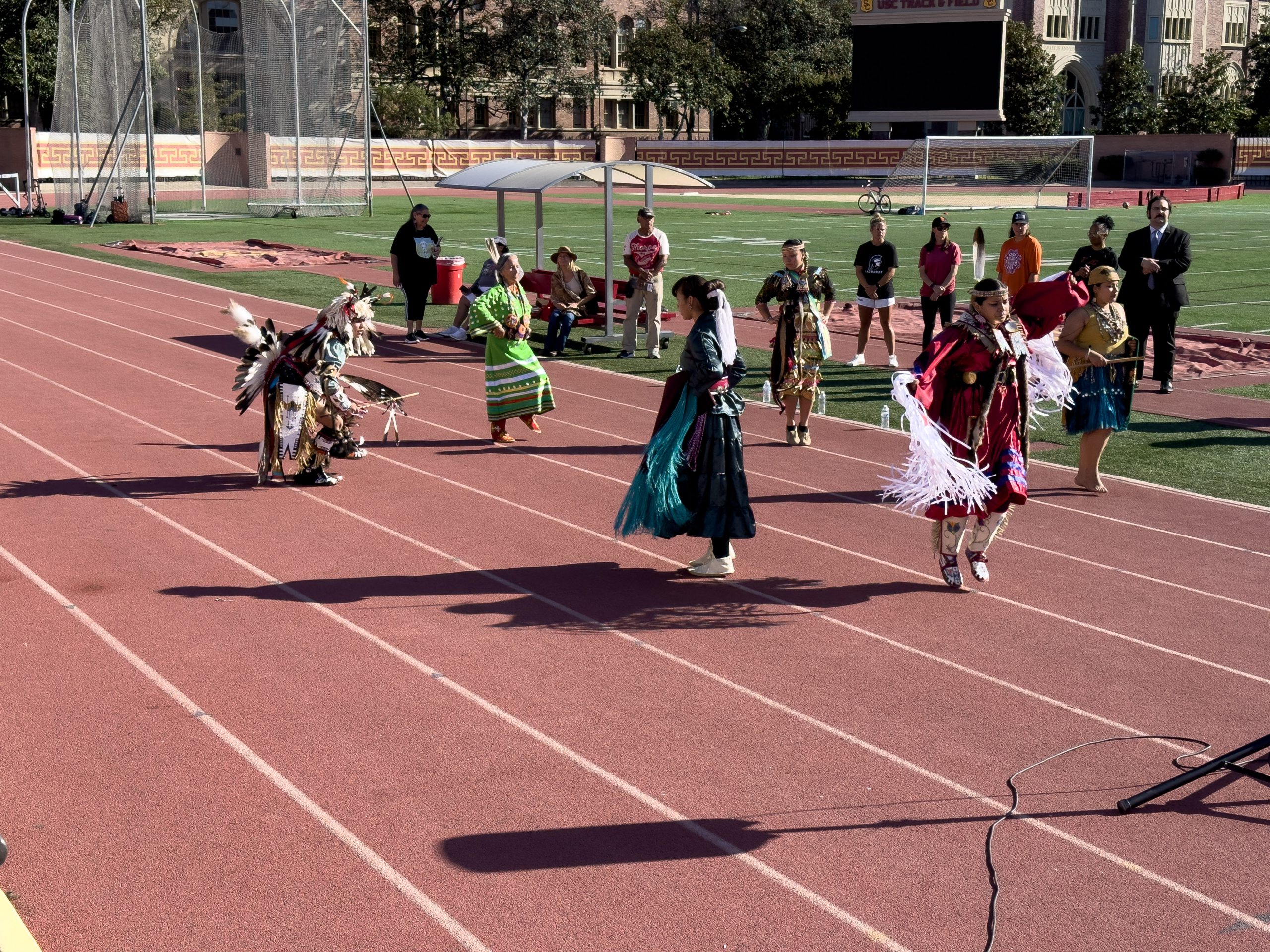Indianz.Com >
News > Indian Country braces for U.S. Supreme Court hearing in ICWA case
Indianz.Com Video: ‘I identify as an American Indian’: Race and the U.S. Supreme Court
Indian Country braces for U.S. Supreme Court hearing in ICWA case
Tuesday, November 1, 2022
By Acee Agoyo
Indianz.Com
WASHINGTON, D.C. — The nation’s highest court is about to hear one of the biggest cases in Indian Country’s history and already some troubling signs are emerging.
During oral arguments for a pair of closely-watched affirmative action cases on Monday, one member of the
U.S. Supreme Court attempted to bring American Indians into the debate. But the questions posed by
Justice Samuel Alito were not about respecting the
sovereignty of tribal nations or upholding the
U.S. government’s trust and treaty responsibilities.
Instead, Alito — who is part of the high court’s conservative supermajority — appeared to reduce Indian people and their legal status to one of race. That very issue is at the heart of the
Indian Child Welfare Act (ICWA) case that will be heard next week.
In fact, conservative state government officials, as well as conservative organizations, claim that ICWA is unconstitutional because they say the law is based on race, rather than on the unique status afforded to tribes and their citizens as part of the legal and political relationship between the United States and Indian nations.
Indianz.Com Audio: 'I identify as an American Indian': Race and the U.S. Supreme Court
“This is a real problem, and I’ve heard it described to me by people who face it,” Alito said during arguments for
Students for Fair Admissions v. University of North Carolina, one of the two affirmative cases heard by the court on Monday.
“When can a student honestly claim to fall within one of these groups that is awarded a plus factor?”
Alito asked in a question that lumps American Indians and Alaska Natives in the same category as other racial or ethnic groups.
Alito wanted to know what the University of North Carolina, whose
affirmative action policies are being challenged as unconstitutional, considers when an applicant identifies as American Indian or as another racial or ethnic group. First, he wondered whether the issue is biological.
“So let’s say the student has one grandparent who falls within that class,” Alito said. “Can the student claim to be a member of an underrepresented minority?”
“Yes, we rely on self-reporting,” responded
Ryan Park, the
Solicitor General for the state of North Carolina, who represented the public university during the hearing.
 A sign is seen outside of the U.S. Supreme Court as two affirmative action cases — Students for Fair Admissions, Inc. v. President & Fellows of Harvard College, and Students for Fair Admissions, Inc. v. University of North Carolina — are argued inside the building on October 31, 2022. Photo by Victoria Pickering
A sign is seen outside of the U.S. Supreme Court as two affirmative action cases — Students for Fair Admissions, Inc. v. President & Fellows of Harvard College, and Students for Fair Admissions, Inc. v. University of North Carolina — are argued inside the building on October 31, 2022. Photo by Victoria Pickering
Alito then went back another generation for his hypothetical — a further sign of his attempt to link race to tribal status.
“All right. One great-grandparent,” he said.
“If that person believes that that is the accurate expression of their identity, I don’t think there would be any problem,” Park replied.
Alito wanted to keep going back more generations but instead decided to ask about those who claim to be American Indian.
“It’s family lore that we have an ancestor who was an American Indian,” the
conservative justice observed.
“I think in that particular circumstance, it would be not accurate for them to say, based on family lore,” Park began stating, before Alito cut him off.
“Well, I identify as an American Indian because I’ve always been told that some ancestor back in the old days was an American Indian,” Alito said as he repeated his question, just with more words attached to it.
“I think in that circumstance, it would be very unlikely that that person was telling the truth,” Park said.
 An item featuring an image of Olympic legend Jim Thorpe is placed on a totem pole created by the House of Tears Carvers from the Lummi Nation during the National Congress of American Indians Sovereignty Run in Los Angeles, California, on October 23, 2022. Photo by Indianz.Com (CC BY-NC-SA 4.0)
An item featuring an image of Olympic legend Jim Thorpe is placed on a totem pole created by the House of Tears Carvers from the Lummi Nation during the National Congress of American Indians Sovereignty Run in Los Angeles, California, on October 23, 2022. Photo by Indianz.Com (CC BY-NC-SA 4.0)
What Park was unable to express amid Alito’s frequent interruptions is that colleges and universities universities have adopted policies that recognize the unique status of American Indian and Alaska Native applicants. The University of Michigan, for example, provides a
tuition waiver for citizens of federally recognized tribes. Fort Lewis College in Colorado
does the same.
But Alito, who was nominated to the bench by Republican former president George W. Bush, has a record of ignoring the nation-to-nation framework that has been at the heart of Indian law and policy since the adoption of the
U.S. Constitution more than two centuries ago. The last time the high court
issued a decision about ICWA, the conservative justice focused on racial and biological aspects.
“This case is about a little girl (Baby Girl) who is classified as an Indian because she is 1.2% (3/256) Cherokee,” Alito wrote in the opening sentence to the majority opinion in
Adoptive Couple v. Baby Girl from 2013.
The decision forced a father from the
Cherokee Nation to accept an adoption proceeding to which he never consented. And while tribes and their advocates were relieved that the court, with the 5-4 ruling, did not strike down ICWA as opponents of the law had urged, they are now confronted with that very real possibility with the case that will be heard next Wednesday.
Indianz.Com Video: ‘A spiritual journey’: NCAI President Fawn Sharp – Sovereignty Run 2022
If opponents are able to convince a majority of the Supreme Court that ICWA is about race, the outcome would represent a significant setback for a law that was written to ensure that tribal nations have a say in what happens to their most precious resource — their children.
“For those of you that are paying attention to what the United States
Supreme Court has done this last year, our tribal sovereignty is once again
under direct attack,”
President Fawn Sharp of the
National Congress of American Indians said in Los Angeles, California, last week.
Sharp brought NCAI to California’s largest city on October 23 as part of the
2022 Sovereignty Run. The
1,785-mile relay began on the Cherokee Nation earlier in the month, with
participants crossing four states in order to focus attention on the
dangers facing tribal rights.
“In just a matter of days, on November 9, the United States Supreme Court is
going to be hearing a case on the constitutionality of the Indian Child
Welfare Act,” Fawn said on the campus of the University of Southern California, which hosted the Sovereignty Run.
“So we knew at the beginning of this year that we are going to have
to do another run to commemorate the 20-year anniversary but to once again
stand strong and unite all of Indian Country and defense of tribal
sovereignty,” said Sharp, who as a young staff attorney for the
Quinault Nation organized the
first Sovereignty Run in 2002, when participants traveled 2,800 miles from
Washington state to the steps of the Supreme Court.
 Frederick “Freddy” Lane of the House of Tears Carvers from the Lummi Nation opens the blessing ceremony for the National Congress of American Indians Sovereignty Run in Los Angeles, California, on October 23, 2022. Photo by Indianz.Com (CC BY-NC-SA 4.0)
Frederick “Freddy” Lane of the House of Tears Carvers from the Lummi Nation opens the blessing ceremony for the National Congress of American Indians Sovereignty Run in Los Angeles, California, on October 23, 2022. Photo by Indianz.Com (CC BY-NC-SA 4.0)
Tribal nations, including Cherokee and Quinault, have taken active stances in the ICWA case, known as
Haaland v. Brackeen. Almost every tribe in the U.S., along with nearly every inter-tribal organization, has signed onto briefs urging the Supreme Court to recognize their sovereignty, which includes exercising authority in matters that affect Indian children.
“Since the founding of the United States, the federal government has recognized and protected the sovereign status of tribes,” one of the
major Indian Country briefs reads. “This trust responsibility has long extended to Indian children, a responsibility initially recognized in treaties that provide federal services, education, and trust funds for their benefit.”
Despite the unified voices, some in Indian Country are already predicting the worst from the highest judicial body in the land. Following oral arguments in the affirmative action cases on Monday,
Chairman Harold Frazier of the
Cheyenne River Sioux Tribe said in an
opinion published on Indianz.Com that the Supreme Court “will lose further legitimacy by striking down college admissions that take account of the racial animus that so many students and families have suffered” in the nation.
“For Native Americans, the Supreme Court lost legitimacy long ago,” wrote Frazier, citing a history of decisions, including a recent one made by the conservative supermajority that undermines the health of Native mothers, that have gone against tribal interests.

Indianz.Com
As for affirmative action, advocates have already warned that the number of Native Americans, as well as African Americans, on campuses will drop significantly with the elimination of status-conscious admission policies.
Justice Sonia Sotomayor raised the issue during the arguments, which lasted more than five hours over the hearings for the two cases.
“Virtually all of the states that have banned consideration of race in any respect experienced a dramatic drop in enrollment of unrepresented minority students, particularly Black students and Native American students, but particularly Black
students,” said Sotomayor, who was nominated by Democratic former president Barack Obama.
But with nearly observer of the high court anticipating the
demise of affirmative action following the arguments, Sotomayor and her more liberal leaning colleagues are finding themselves in the minority when it comes to interpreting the law. Of the nine justices, six were nominated by Republican presidents — including three named by Donald Trump, who served just one term in office, though he continues to dispute his loss almost than two years after the 2020 election.
The conservative supermajority thus represents an ongoing threat when it comes to Indian law cases — a number of which are decided by votes of 5-4, just like
Adoptive Couple v. Baby Girl, the ICWA case that went against tribal interests nearly a decade ago.
The presence of
Justice Neil Gorsuch, whose knowledge of Indian Country is unprecedented in Supreme Court history, cannot overcome conservative interpretations of the law either. He was unable to prevent an
erosion of tribal sovereignty in Oklahoma v. Castro-Huerta, which was decided by a 5-4 vote on June 29, a defeat that remains fresh in the minds of many.
“We know our history and we know that when tribal nations achieve great progress, when we start to assert our authority, when we start to reach back into those treaties and say, ‘Those are our rights, those are precious rights, and we’re going to assert those rights,’ we know that there are people in this country — some of them in positions of great power — who want to strike back,” Principal
Chief Chuck Hoskin Jr. of the Cherokee Nation said at the
start of the Sovereignty Run on his tribe’s reservation in Oklahoma on October 3.
NCAI completed the Sovereignty Run on Monday with the start of its
79th annual convention, which is being held in Sacramento, the capital city of California. The event runs all week, with a discussion on the
ICWA case taking center stage on Thursday.
The Supreme Court is dedicating its entire session next Wednesday to the ICWA case. The hearing has been scheduled to last 1 hour and 40 minutes, according to the
argument calendar. Indian law hearings typically run longer than the allotted time.
 Dancers take part in the National Congress of American Indians Sovereignty Run in Los Angeles, California, on October 23, 2022. Photo by Indianz.Com (CC BY-NC-SA 4.0)
Dancers take part in the National Congress of American Indians Sovereignty Run in Los Angeles, California, on October 23, 2022. Photo by Indianz.Com (CC BY-NC-SA 4.0)
The challenge to ICWA was filed by non-Indians who want to be able to adopt Indian children without the involvement of tribal governments. The law, which was enacted by Congress in 1978, otherwise recognizes tribal sovereignty in child welfare proceedings in order to address the high rates of removal of Indian children from their communities.
“Nothing is more critical to ensuring the safety and welfare of Indian children than preserving the sovereignty of their Tribal Nations,” the
National Indigenous Women’s Resource Center said in a
brief that was joined by dozens of supporting organizations in Indian Country.
The plaintiffs also include three state governments — all led by Republican political officials — that maneuvered the lawsuit to be heard by a federal judge who was nominated by Donald Trump and, later, for it to be placed before an appellate court stacked with conservative-leaning jurists. The case has been so controversial in fact that it was considered twice by the
5th Circuit Court of Appeals.
The second hearing resulted in
325 pages of rulings from the 5th Circuit, much of it conflicting in nature and almost all but ensuring the Supreme Court would want to resolve the matter.
The presence of Texas, Indiana and Louisiana in the case further led to the introduction of conservative legal principles into the record. Prior challenges to ICWA had been brought primarily by individuals, whose grievances were not particularly successful in the courts.
Only the state of Texas, however, sought Supreme Court review of the 5th Circuit ruling.
Related Stories
Indian Country Today: Fate of Indian Child Welfare Act up to federal courts (October 12, 2020)




